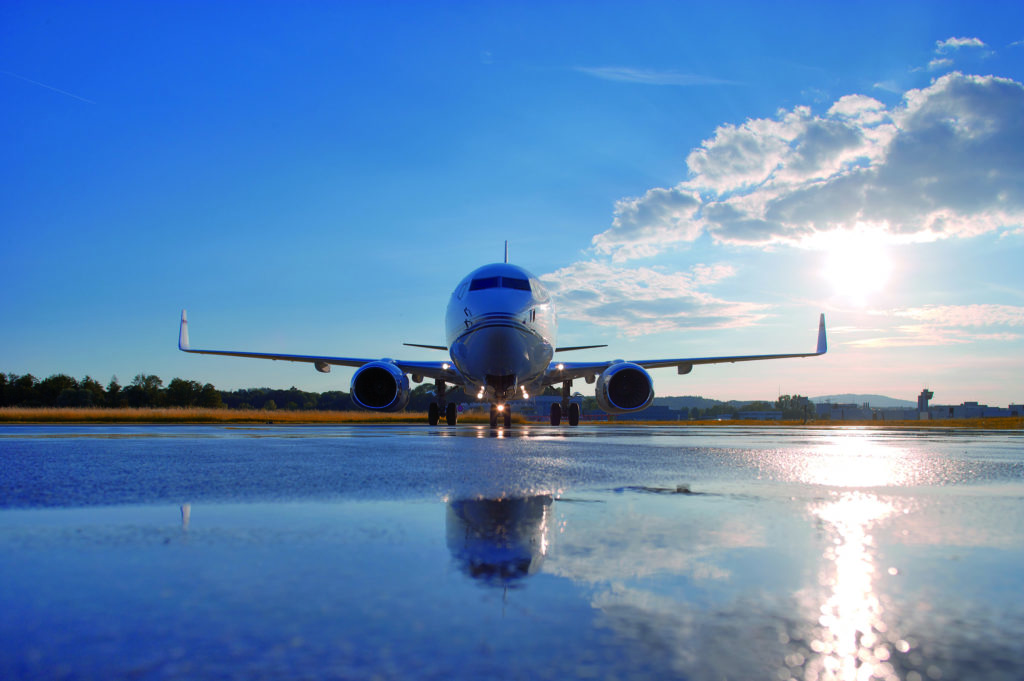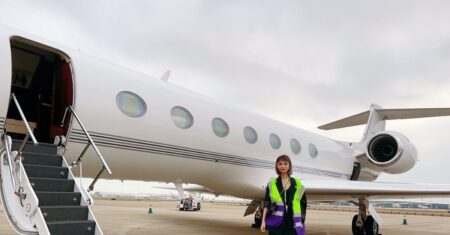Increased financial investment in women’s sport, a growing gender equality debate and a greater desire for protection from infection could see female athletes traveling by chartered aircraft became normal by Euro 2022, according to a global air charter specialist.
For many years now the top sports teams across the world have chartered aircraft to take their male stars to matches and tournaments, whether that is soccer giants in Europe or basketball legends in the United States.
But for the most part women have been left behind, often flying alongside the public on scheduled airlines or even traveling by rail or coach in Europe.
Now, however, global air charter specialist Chapman Freeborn has noticed a new trend in European soccer in particular – women’s teams finally getting the go-ahead to level up the playing field and see their athletes treated the same as the men.
Nick Lamb, group sports director at Chapman Freeborn said, “We have seen a significant increase in enquiries, certainly this year. This is predominantly due to greater investment in the sport plus the impact of the pandemic because teams are wanting to stay in their ‘bubble’ and travel in a secure and safe environment.
“It is early days, of course. Almost all of the enquiries we have received are within soccer and compared to the men’s game, it’s a minute percentage. But we hope to see this change soon with more investment going into many women’s sports and with a greater focus on gender equality.
“The UEFA Women’s Champions League is a good barometer and we received many enquiries even during the qualifying stages. Teams are wanting to stay in their bubble and be socially distanced and are more likely to travel by charter to destinations where scheduled flights are complicated or non-existent. “
The United States has always been ahead of the game when it comes to the way female soccer players are looked after, not least because huge soccer crowds in the USA mean the game there has a high profile and big financial rewards. Now it may be time for Europe to follow suit.
Lamb said, “The US has historically led the way when it comes to chartering for women’s teams, mainly because women’s soccer generates large income and is growing ever bigger.
“But as women’s soccer continues to grow in Europe, too, people are asking why the men should travel by charter in a safe secure way but the women be treated differently. We strongly believe that as the profile of women’s sport grows, flying by charter will increase.
“I expect by the time Euro 2002 arrives in England in June 2022, women’s soccer teams will be flying by charter regularly.
“In fact, this could be the tournament where we see a significant shift, even though scheduled flights are likely to be easily accessible in the host country. It will be interesting to see what national associations choose to do.”
One solution being considered by many sports is hosting men’s and women’s events concurrently, so that revenue and sponsorship is shared more evenly.
This has been seen in rugby union, for instance, where women’s internationals have been held before or after men’s fixtures at Twickenham – and in rugby sevens where tournaments feature both men’s and women’s teams in one venue.
It’s a model which has worked well for tennis for decades and could be replicated in soccer, rugby, golf, basketball and handball too.
“So far we haven’t seen men’s and women’s teams traveling together on chartered aircraft, but it could be a great idea for the future if men’s and women’s competitions are played at the same venue,” said Lamb.





